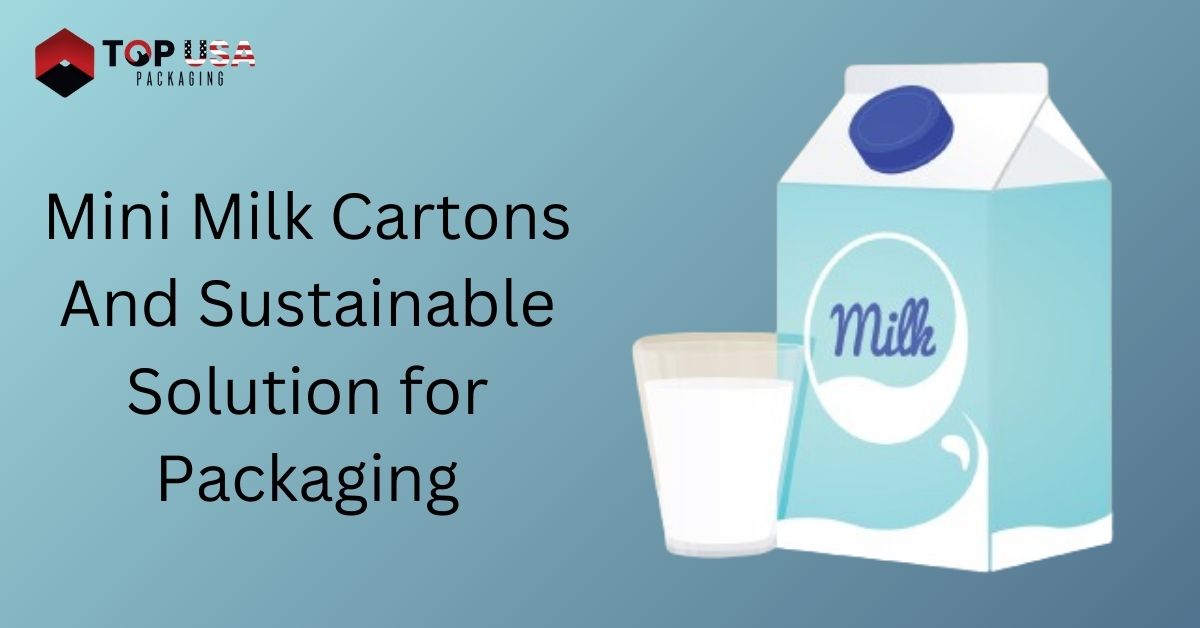
Mini Milk Cartons And Sustainable Solution for Packaging
In today’s world, where environmental sustainability is becoming increasingly important, the packaging industry is witnessing a significant shift towards eco-friendly alternatives. Mini milk cartons, along with compostable garbage bags, are emerging as viable solutions to address the growing concerns regarding traditional packaging materials’ environmental impact.
Introduction to Mini Milk Cartons
Mini milk cartons also known as tetra packs, are small-sized containers designed to hold milk and other beverages. These cartons are typically made from paperboard, polyethylene, and aluminum foil, providing a lightweight yet durable packaging solution.
Evolution of Milk Packaging
The history of milk packaging dates back to the late 19th century when glass bottles were commonly used. Over time, packaging materials evolved, with cartons gaining popularity due to their convenience and sustainability.
Environmental Concerns with Traditional Packaging
Traditional packaging materials, such as plastic bottles and containers, pose significant environmental challenges. They contribute to plastic pollution, take centuries to decompose, and often end up in landfills or oceans, harming ecosystems.
The Rise of Compostable Garbage Bags
Compostable garbage bags have gained traction as an alternative to traditional plastic bags. These bags are made from biodegradable materials, such as cornstarch or plant-based polymers, and break down into natural components when disposed of properly.
Benefits of Compostable Packaging
Compostable packaging offers several benefits, including reduced environmental impact, resource conservation, and support for circular economy principles. These bags can be composted along with organic waste, reducing landfill waste and returning nutrients to the soil. Additionally, compostable packaging helps mitigate the negative impacts of conventional plastic on wildlife and marine ecosystems.
Characteristics of Mini Milk Cartons
Mini milk cartons are designed to be lightweight, compact, and convenient for both manufacturers and consumers. They typically feature a sealed spout or cap for easy opening and resealing, ensuring freshness and preventing spills.
Sustainability in Packaging
The shift towards sustainable packaging solutions reflects a growing awareness of the environmental consequences of traditional packaging materials. Manufacturers are increasingly incorporating recycled content into their packaging and exploring renewable resources to reduce their carbon footprint.
Advantages of Mini Milk Cartons
Mini milk cartons offer several advantages over other packaging formats. They are space-efficient, stackable, and require minimal material for production, resulting in lower transportation costs and reduced environmental impact. Moreover, their rectangular shape allows for efficient storage and display on retail shelves.
If you want to know more information about compostable garbage bags visit TopUSAPackaging.
Usage of Mini Milk Cartons in Various Industries
Mini milk cartons are not limited to dairy products; they are also used for packaging juices, water, and other beverages. Their versatility makes them suitable for a wide range of applications, from school lunches to on-the-go snacks.
Innovations in Packaging Technology
Advancements in packaging technology have led to the development of eco-friendly coatings and adhesives that enhance the recyclability and compostability of mini milk cartons. Manufacturers are also exploring alternative materials, such as bio-based plastics and plant fibers, to further reduce the environmental impact of packaging.
Design and Customization Options
Mini milk cartons offer ample opportunities for branding and customization. Companies can print vibrant graphics, logos, and product information directly onto the cartons, creating eye-catching packaging that. Now, let’s proceed with more details on cost considerations, consumer awareness, and challenges in adopting these sustainable packaging solutions.
Cost Considerations
While mini milk cartons may initially seem more expensive than traditional packaging materials, their long-term benefits in terms of sustainability and brand reputation often outweigh the upfront costs. Companies investing in sustainable packaging demonstrate their commitment to environmental stewardship, which can enhance customer loyalty and drive sales.
Consumer Awareness and Education
Educating consumers about the benefits of compostable packaging and the importance of proper disposal is crucial for widespread adoption. Companies can engage in marketing campaigns, label their products clearly with information about compostability, and provide guidance on proper disposal practices to raise awareness among consumers. Additionally, partnerships with environmental organizations and educational initiatives can help disseminate information and promote sustainable behavior.
Challenges and Limitations
Despite their numerous benefits, mini milk cartons and compostable packaging face several challenges and limitations. One major challenge is the availability of infrastructure for composting. Many communities lack composting facilities or curbside composting programs, making it difficult for consumers to dispose of compostable packaging properly. Furthermore, the cost of compostable materials and processing technologies can be higher than traditional alternatives, posing financial barriers for some companies, especially small businesses. Additionally, concerns have been raised about the durability and shelf life of compostable packaging, as well as its performance in various.
Future Prospects
Despite the challenges, the future looks promising for mini milk cartons and compostable packaging. As consumer demand for sustainable products continues to grow and governments implement stricter regulations on single-use plastics, there will be increasing opportunities for innovation and investment in eco-friendly packaging solutions. Additionally, collaborations between industry stakeholders, government agencies, and environmental organizations can drive collective action towards building a more sustainable packaging infrastructure.
Conclusion
In conclusion, mini milk cartons and compostable packaging represent a significant step towards reducing the environmental impact of packaging materials. These sustainable solutions offer numerous benefits, including lower carbon emissions, reduced waste, and support for circular economy principles. While challenges remain, such as infrastructure limitations and cost considerations, the increasing consumer demand for eco-friendly products and the commitment of businesses to sustainability bode well for the future of mini milk cartons and compostable packaging.


